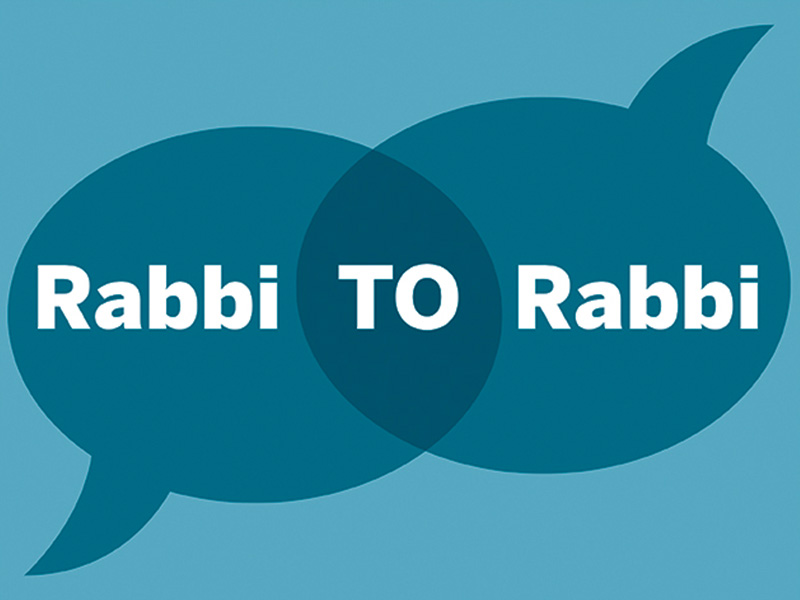Judaism has the power to bring a moral voice to any issue , but what are rabbis’ parameters for activism, and when should they take a stand from the pulpit?
Rabbi Adam Cutler
Beth Tzedec Congregation, Toronto
Rabbi Adam Scheier
Congregation Shaar Hashomayim, Montreal
Rabbi Cutler: Recently, 1,000 American rabbis signed a letter encouraging the U.S. Congress to welcome Syrian refugees to the United States. I often receive solicitations to add my name to petitions on all sorts of issues, ranging from Israel and environment concerns to the death penalty and doctor-assisted death. I imagine that you do as well.
As religious leaders, I believe that it is incumbent upon us to join the public debate and use our moral voices for good. At the same time, such petitions generate concerns. When an issue has a strong partisan quality, is it appropriate to speak up? When should I fear alienating my community? And more broadly, what differentiates a rabbi from a prophet?
Rabbi Scheier: Your questions cut to the core of what it means to be a congregational rabbi in the 21st century. Equal in importance to our engagement with traditional Jewish texts is our engagement with the social and political issues of the day.
READ: Toronto Jewish day school to sponsor refugees
Our voices need to be heard when it comes to contemporary issues. The media that our congregants consume doesn’t recognize borders – who in our community isn’t following the drama of the American election cycle? The issues we discuss should be those that matter to us and inform our Jewish lives, regardless of whether they emerge from events outside our immediate communities.
For an activist rabbi, Judaism has the power to bring a moral voice to any issue, and signing petitions is one way to exercise this voice.
What are your parameters of activism? When do you believe, as a rabbi, it’s important to speak up, and when should one remain silent?
Rabbi Cutler: Ecclesiastes teaches that there is “a time to be silent and a time to speak.” Unfortunately, Ecclesiastes doesn’t give guidance as to which situations merit which response.
Each situation becomes a judgment call. I ask myself: will my voice make a difference? Does engaging this time mean I will be more or less effective the next time? How will I see myself in 20 years if I don’t speak up?
Rabbis engage in activism in a variety of ways. One of which is from the pulpit. It can be a powerful venue to encourage a community to engage with an important issue. Some sermons take an issue about which our community is divided, and the role of an (activist) rabbi is to argue for a particular side. In such a situation, the rabbi serves as an authentic Jewish voice – indeed, the voice that a particular community has chosen as its Jewish guide.
READ: Rabbis must lead, not follow
Other sermons address issues about which there exists near-communal consensus. In those instances, the rabbi spends less time arguing for a particular side (none of our congregants, for example, are pro-genocide, so rabbis need not spend time arguing why genocide is wrong) and behaves more as a community organizer, encouraging congregants to take action.
My ordination certificate refers to me as a “teacher and preacher.” When I speak on issues about which there is not yet consensus, I feel that I am acting more as a teacher. When I address issues about which consensus exists, I feel that my role is closer to that of a preacher.
Rabbi Scheier: I am reminded of the joke about the rabbi who proposes to speak about intermarriage, kashrut or Shabbat. “No,” the synagogue president says, “those topics are too contentious and might offend members of the congregation.” “What, then, should I discuss?” the rabbi wonders. “Judaism!” responds the president.
I suppose my parameters for discussing “hot-button issues” are a) whether or not I can express a unique approach based on Jewish thought, and b) whether the topic is sufficiently stimulating to the members of my community to foment further conversation.
I have a friend who is a rabbi in the American South. Whenever I share an insight that he likes, he’ll tell me, “As we say down here: ‘That’ll preach!’”
The instinct of knowing what will “preach” is not something to which we can apply objective parameters. It is something, perhaps, that we learn over time, through the inevitable journey of trial and error. As you taught, Ecclesiastes doesn’t specify which is a time to speak and which is a time for silence: the application of this verse is our responsibility.
